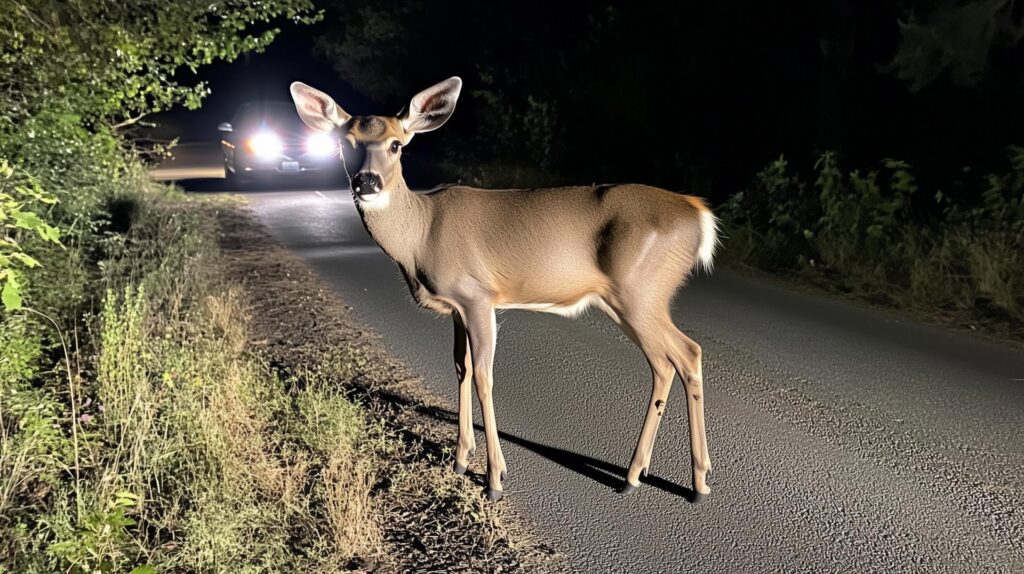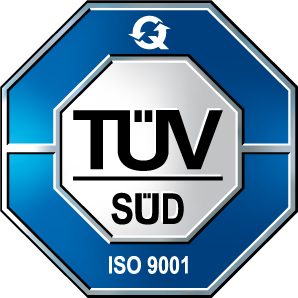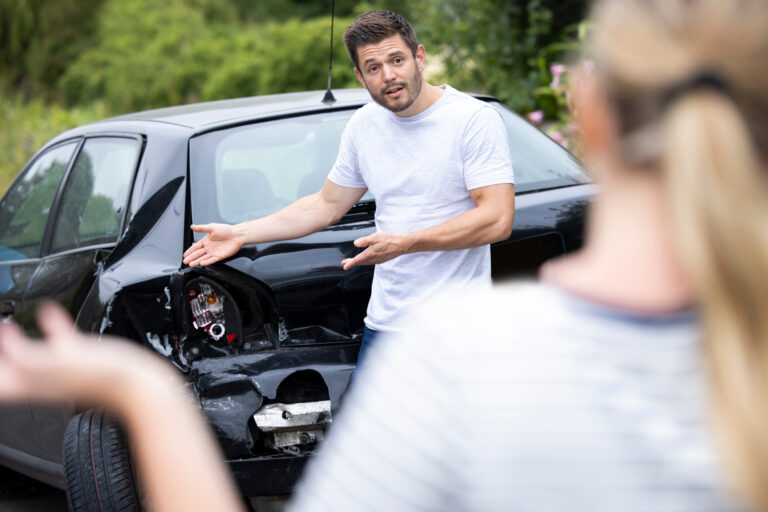After a wildlife accident, there is not only the shock of losing an animal's life, but also the big question of what needs to be considered and reported. Does the wildlife accident really have to result in strenuous communication with the authorities, countless phone calls and correspondence? And who actually pays for the damage? Does wildlife accident insurance apply here? And is insurance upgraded after a wildlife accident? We explain - in our wildlife accident guide.
- A collision with so-called "furred game" is a typical wildlife accident.
- These include accidents with roe deer and stags, wild boar, foxes, badgers, hares and otters. In addition, typical mountain dwellers such as chamois and marmots.
- Liability insurance only: Damage to your own car is generally not covered.
- Partial/fully comprehensive insurance: Usually pays for the damage to your own car.
- Wildlife accident - what to do? A wildlife accident must be reported - even if the injured animal moves away from the scene of the accident.
- As the wild animal is "ownerless" and therefore does not belong to anyone, you have no claims against other people.
Deer, wild boar and co: What is a wildlife accident?
A wildlife accident is a road traffic accident involving a land vertebrate authorised for hunting. However, the term "wild animal" is narrowly defined by the insurance companies and refers exclusively to so-called "furred game". For example, deer, stags or wild boar, but also badgers, foxes, hares and even otters. If you are often travelling in the Alps or other high mountain regions, you can also add marmots and chamois to this list.
All other animals such as birds, ducks, hedgehogs, snakes, frogs etc. do not fall under the category of furred game and are therefore not considered wildlife accidents. The same applies to dogs, cats, horses and other domestic and farm animals such as pigs or sheep. Although these can also cause considerable damage to the vehicle, they are not categorised as wildlife accidents by the insurance companies. The question of claims is also different here, as these animals usually have an owner who can be held liable for the damage.
Have you had a collision with an animal and are unsure what to do next? Our experts will help you quickly and easily and support you in reaching an agreement with the owner. Simply get in touch with us.
Accident victims like you get the best support from fairforce.one.
Have your accident reported now free of charge and without obligation by our regulation specialists.
Wildlife damage insurance: Partially comprehensive, fully comprehensive or third-party liability?
A wildlife accident can happen quickly. Especially at dusk or at night, many animals cross roads and are difficult to recognise. A collision cannot always be averted and leads to major damage to the vehicle. But which insurance company has to pay?
Wildlife accident liability:
With pure third-party liability insurance, you have no chance of having your claims settled. This is because compulsory insurance only covers the damage you cause to other vehicles and is therefore designed to protect other drivers from having to pay for damage they cause through no fault of their own. However, since an accident with a deer or wild boar affects your own car, you will have to pay for the repairs yourself without partial or comprehensive cover.
Wildlife damage partial cover:
Most comprehensive insurance policies have an animal collision clause. This means that in this case, the partial casco covers the damage and pays for the repair (possibly with an excess). But beware, partial casco for wildlife accidents is not always automatically included in the insurance policy and must be booked separately. In addition, the partially comprehensive cover often only includes collisions with furred game and not with domestic animals and livestock. The burden of proof is always on the driver.
Wildlife accident fully comprehensive:
Comprehensive insurance generally covers damage caused by collisions with animals. This includes not only furred game such as deer and wild boar, but also other animals that fall into the domestic or farm animal category. This includes, for example, dogs, horses, sheep and the like. However, this may result in a downgrade to a less favourable no-claims class.
It is often also relevant whether damage to your own vehicle was caused by evasive manoeuvres or a direct collision with the animal. If the damage is not caused directly by the animal, but is the result of an evasive manoeuvre, the partially comprehensive insurance can claim compensation for expenses (so-called "rescue costs").
Basically, the following applies: With strong experts on hand, the subsequent adjustment is quick and easy. We will be happy to help you with this.
Swerving to avoid animals on the road should be avoided. This is because a sudden evasive manoeuvre can not only lead to even greater damage (for example by colliding with a tree), but can also unnecessarily endanger the evader and other road users. If you swerve, you risk not only your own life and the lives of others, but also the loss of the insurance benefit.
Deer hit by a car - what to do?
In the event of a wildlife accident, drivers are initially shocked. A collision with larger animals in particular not only causes a real bang, but also a real moment of shock.
The first step, as with any other accident, is always to keep calm. After that, the steps do not differ greatly from those in other accidents. The basic rule is:
- Pull over to the rightswitch on the hazard warning lights and check that you are okay.
- For your own safety, please do not touch the animal, but keep a sufficient distance and keep your distance from it. Secure the accident site with the warning triangle. Wear a high-visibility waistcoat.
- Inform the police and, if necessary, the responsible forestry office. The police will usually take care of the latter for you. Wildlife accidents must always be assessed by a hunter. Be sure to stay at the scene of the accident until the authorities arrive.
- Have the incident properly documented and obtain a game accident certificate from the hunterbefore you report the damage to your insurance company. The certificate is the most important proof that damage to the vehicle has been caused by a wild animal accident.
- Do not remove and clean the traces of the accident on the vehicle yet so that they can be examined by the insurance company later on. We also recommend that you take photos of your vehicle and, if necessary, the situation on site.
Do not simply continue driving after colliding with an animal. Although continuing to drive is not a "hit-and-run wildlife accident", you are still in breach of the Animal Welfare Act. This constitutes an administrative offence and is punishable by a fine. The game that has been hit must also not be removed from the scene of the accident, otherwise you may be charged with poaching.
Is there an obligation to report wildlife accidents?
Do not hesitate to report a wildlife accident. Even if the injured animal moves away from the scene of the accident, you must report the incident. This is so that a hunter can search for the injured animal and, if necessary, put it out of its misery.
It is also essential to call the emergency services in the event of an injury. But even if there are no injuries, the police must always be called. In many federal states, it is also mandatory to call a hunter. In most cases, the police will do this for you. If in doubt, simply ask. Ask the hunter to give you a wildlife damage certificate so that you can prove the collision to your insurance company.
Collisions with small animals such as frogs, hedgehogs and birds such as ducks or geese do not have to be reported.
Claims for compensation after a wildlife accident
In the legal sense, a wild animal is usually considered an ownerless object. Therefore, in the event of an accident involving wildlife, you cannot usually claim compensation from the gamekeeper or forest owner.
The situation is different in the case of pet accidents, where the owner often has to pay for the damage caused by their four-legged friend. This applies not only to dogs and cats, but also to farm animals such as horses, pigs or sheep.
The road sign "Wildwechsel" (game crossing) must be displayed in front of particularly dangerous areas, such as game crossing points or places with a high density of game. If this traffic sign is missing, there is a chance that the responsible road authority will have to pay for the damage caused by game.
Duty of proof: Was it a wildlife accident?
After a wildlife accident, the policyholder must prove to the partially comprehensive insurance company that the road accident was caused in connection with a hazard posed by a wild animal. The burden of proof therefore lies with the driver. This is generally not necessary with fully comprehensive insurance. Nevertheless, you should have the accident confirmed on site to be on the safe side.
There are various types of evidence to prove a wildlife accident. These are, for example
- Police report
- Certificate from the gamekeeper (an expense allowance may be payable for this)
- Photos of the accident scene and accident damage
- Remains of wild animals
- Witness reports (particularly important in the case of swerving wildlife accidents)
A thorough cleaning of the vehicle should not be carried out too quickly after a wildlife accident, as the traces of the accident can be important for the insurance company - especially if an expert is to inspect the car. An inspection of the scene of the accident and a detailed assessment of the vehicle involved in the accident are no exceptions.
If you do not have proof that the damage was caused by a wildlife accident, the (partially comprehensive) insurance company may refuse to settle the claim and you will be stuck with the costs. So make sure you have a wildlife accident certificate issued and keep copies of the police report and other important documents in a safe place.
The right steps for fair claims settlement
A wildlife accident does not have to lead to a wild settlement process. You can get the best help from us at fairforce.one:
- You get into a traffic accident through no fault of your own and want to claim compensation.
- You report the accident to us risk-free and free of charge by telephone on 0800 30 111 60 or even faster online.
- Our competent team will examine your case immediately and explain how to proceed.
- The claims settlement is initiated and you no longer have to bother with paperwork.
The licensed specialists from the fairforce.one network take care of the tasks involved and deal with your claims for damages, with absolute expertise and without risk to you.
FAQ on wildlife accidents
What do the police do in the event of a wildlife accident?
The police must be called in the event of a collision with an animal. They will record the accident, inspect the scene and, if necessary, call a hunter to search for or rescue the animal. The documentation in the police report also serves as proof for the insurance company that a wildlife accident has occurred.
learn moreWho pays the excess in the event of a wildlife accident?
In the case of partially comprehensive insurance with an excess, this is usually paid by the policyholder. If agreed, this also applies to accidents involving wild animals. This means that partially comprehensive insurance policyholders only have to pay the excess and not the majority of the damage.
learn moreWill I be upgraded in the insurance if I have a wildlife accident?
Whether an upgrade takes place depends on the insurance company. As a rule, an upgrade only takes place in third-party liability and fully comprehensive cover, and less frequently in partially comprehensive cover. This is because it is only increased if the driver is responsible for the damage or can influence it through their individual driving style. However, a collision with an animal is often unavoidable and is one of the most unavoidable accidents.
learn moreIs there an obligation to report a wildlife accident?
In a nutshell: Yes, a report is mandatory. At least in the case of collisions with furred game or domestic and farm animals. The police and, if necessary, a hunter must be called - even if the animal moves away from the scene of the accident. If you simply drive on, you are violating the Animal Protection Act and committing an administrative offence.
learn moreCan I report a wildlife accident to the police afterwards?
If you simply drive on after a wildlife accident, you are not legally committing a hit and run. A subsequent report to the police therefore has no legal consequences. However, leaving the scene of an accident without reporting it may constitute an offence against the Animal Protection Act or the State Hunting Act and be punished as an administrative offence. As you cannot usually claim the damage from the insurance company without reporting it, you should report the collision as soon as possible. As a rule, the police and others will understand that shock and fright have led to you continuing your journey.
learn more




